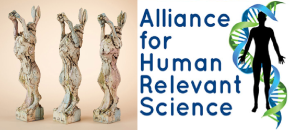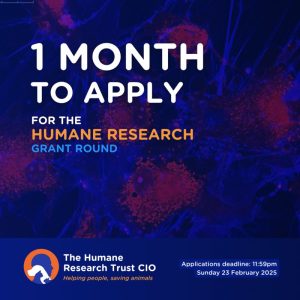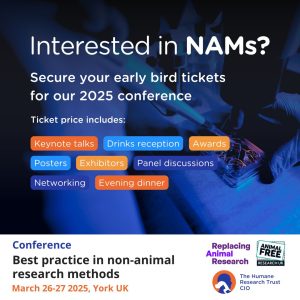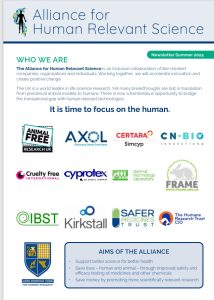The Alliance is delighted to invite you to an exciting and unique two-day scientific meeting in London on 3rd and 4th February 2026: A human focus for 21st century life sciences
This free event is sponsored by the Royal Society and will be held at One Birdcage Walk.
This “science+” discussion meeting will showcase the transformative value of innovative, human-focused biomedical technologies, which are providing invaluable insights into human diseases and could underpin the development and optimal use of new and repurposed medicines. It will bring together researchers, clinicians, industries, regulators, policymakers and others to discuss key challenges and how to surmount them to accelerate their advantageous development and implementation.
We are looking for your input, for lively discussions and a real exchange of ideas, to make this meeting of minds have tangible impact
To request an invitation to attend the event in person (only 200 spaces!) or register to watch online, please go to the Royal Society event page
We hope to see you there!






Launched in 2012, the Lush Prize rewards initiatives across science and campaigning that work to end or replace animal testing with modern scientific methods. Since then it has awarded prize funding of almost £3 million to 140 successful projects worldwide across several categories; Science, Training, Public Awareness, Lobbying, Political Advocacy and Young Researchers, as well as further awards and commendations to recognise Political Achievement and Major Science Collaborations. Alongside funding awards, the Prize continues its work in communications, policy and outreach on the need to transition from animal-based research to approaches which are more human and environmentally relevant.The aims of the Lush Prize align with the objectives of the Alliance to;
* Support better science for better health;
* To save lives – human and animal – through improved research, development safety and efficacy testing of medicines and other chemicals;
* To save money through more relevant research.
#humanrelevantscience
#lushprize